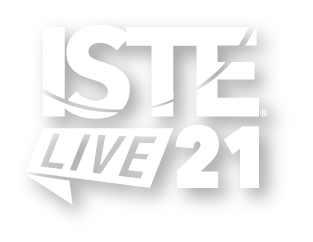

Insider Secrets for Future-Ready Skill Development: Databases and Student Research Projects |
Listen and learn : Panel
Dr. Julie Evans Ann McCann Jo Melinson
Teachers and librarians share the same concern: how to help students develop critical thinking and information/media literacy skills as preparation for college and the workplace. Using new study findings and best practices from two high schools, this discussion provides insights on leveraging online databases to develop students’ research competencies.
| Audience: | Curriculum/district specialists, Library media specialists, Principals/head teachers |
| Skill level: | Beginner |
| Attendee devices: | Devices not needed |
| Topic: | Online tools, apps & resources |
| Grade level: | 6-12 |
| Subject area: | Science, Social studies |
| ISTE Standards: | For Students: Knowledge Constructor
|
Today’s school and district leaders are increasingly focusing on two primary goals relative to student success; closing the academic achievement gap between students and ensuring that all K-12 students are well-prepared with the skills they need to achieve success in college or the workforce. Correspondingly, the metric for evaluating the most successful schools in America has shifted from an exclusive focus on graduation rates to measuring a combination of academic and global skill competencies. Students who possess these new competencies today are considered well-prepared or ready to address the challenges of an uncertain future in the global information economy and society; they are in fact “future-ready.” Based upon recent research from Project Tomorrow, education leaders (91%), parents (73%) and community members (83%) agree that critical thinking is the most important skill that students need to develop to be future-ready. This high valuation on critical thinking as a future-ready skill is also echoed by world economists and business leaders. In a recent report, The World Economic Forum identified complex problem-solving and critical thinking as the skills that will keep people employed even with the advent of new technologies and artificial intelligence in the workplace.
Schools and districts are implementing various new learning methodologies and approaches in the classroom to help their students develop future-ready skills, including critical thinking. The effective use of digital or online resources has long held the promise of personalizing the learning process for each student while at the same time providing students with a plethora of high-quality content beyond the physical resources in their school or community. This greater emphasis on future-ready skills is increasing the interest in how to effective leverage technology to support the development of global skills alongside strong academic achievement. While 92% of district administrators believe that the effective use of technology in the classroom leads to greater student success, many teachers continue to be challenged as to how to embrace these new digital tools within their instructional practice. Increasingly, librarians and media specialists are answering this call for help by providing frontline support to their teachers. As the content expert on campus, school librarians are helping teachers re-think their traditional research project assignments, for example, to encourage student usage of online databases to support research activities. This new trend has a double-bottom line benefit. Student usage of online resources provides a way for students to develop stronger information and media literacy skills while also exercising their critical thinking muscles through an effective and meaningful research project.
But this understanding of how to effectively leverage online resources and notably, online databases, to support student development of future-ready skills is not widely adopted yet. Teachers and librarians share a common concern that students are not developing appropriate information and media literacy skills due to a preponderance of ineffective Google searching for authoritative research. So, how can teachers and librarians work together to provide their students with new tools and strategies for research activities that they can use today as well as in college or a future job? This panel discussion will feature best practices from two high schools, one public and one private, where the school librarians and classroom teachers regularly work collaboratively to create student research projects that address the development of critical thinking and information and media literacy skills. Using multiple examples from their campuses, the panel discussion will provide our audience with key takeaways such as:
Strategies for establishing a high impact partnership between the classroom and the library for student research projects
Understanding how to manage cross-curricular research projects so that they address the standards across the different subject areas
Usage of online databases to support student research skill development – in the classroom and the library
Creation of sustainable information and media literacy skills that support students’ college and career readiness
Anchoring this discussion will be a combination of timely Speak Up Research from Project Tomorrow from students, librarians, teachers and administrators about future-ready skill development and the results of a comprehensive research study conducted by Project Tomorrow in the 2018/19 school year to identify best practices for the use of online databases in classroom-library collaborations. The two librarians on this panel discussion were key contributors to that research study and will share with our audience detailed examples of replicable projects that teachers and librarians can implement in their schools.
Introductions and audience polling on best practices for developing students’ future-ready skills (5 min)
Review of Project Tomorrow research findings on the state of students’ opportunities to develop critical thinking and information/media literacy skills in schools today (5 min)
Review of findings from the research study as to the efficacy of the use of online databases to develop these skills (5 min)
Librarians from two study high schools share examples of classroom-library projects across variety of curricular areas and the results of those projects on students’ skill development. Discussion of the lessons learned from these projects and how other schools can leverage these same approaches (30 min)
Audience participation through Q&A with the panel (10 min)
Wrap up – provide all audience members with access to an online site to learn more about the research and the classroom-library projects identified in the session (5 min)
Research Study Results - white paper, infographic and best practices guide https://www.gale.com/schools/project-tomorrow-research-study
Extensive repository of Project Tomorrow reports, white papers and infographics: http://www.tomorrow.org/speakup/speakup_data_findings.html
This repository includes these relevant reports:
The Educational Equity Imperative: Leveraging Technology to Empower Learning for All (report)
Trends in Digital Learning: Building teachers’ capacity and competency to create new learning experiences for students (report)
Digital Learning 24/7: Understanding Technology — Enhanced Learning in the Lives of Today’s Students (report)
Digital Learning: Peril or Promise for Our Students (report)
90 Days that Changed K-12 Teaching and Learning (report series - 4 papers)




Jo Melinson, an ISTE Certified Educator, has been working in libraries for 29 years. She’s currently 6-12th grade librarian at Sacramento Country Day School a co-ed, prek-12th, independent school. She collaborates often with teachers on research projects and trains students and faculty on the use of library resources. She’s interested in diversity, inclusion, equity and justice and has served on her school’s DEIJ committee since 2000 (as the founding chair from 2000-2007 and currently as part of the leadership team). She’s a member of the Association of Independent School Librarians (AISL) as well as Bay Area Independent School Librarians (BAISL).